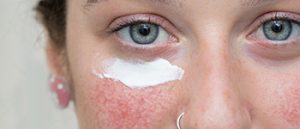What is Melasma?
Melasma is a type of hyperpigmentation which is due to the overproduction of melanin i.e. pigment. It appears a pigmented patch on the cheeks, nose, chin, forehead and sometimes on forearms. It’s most commonly seen in woman but at times can also affect men.
What Causes Melasma
Melasma can be genetic. at times it occurs during pregnancy, or due to use of birth pills. Sun exposure aggravates Melasma. Stress and thyroid disorders also aggravates Melasma.
How do dermatologists diagnose Melasma?
We, dermatologists can diagnose most patients by looking at their skin. To see how deeply the Melasma penetrates the skin, your dermatologist may look at your skin under a device called a Wood’s light. Now a day’s dermosopy is used to determine the pigment level.
Sometimes Melasma can mimic another skin condition.
How do dermatologists treat Melasma?
Melasma may last for years and may not be cured completely. There are various advanced treatments options available that can show considerable improvement of the condition. Also more than a cosmological issue, it severely impacts the patient psychologically. Hence effective counselling coupled with post procedure care is of the utmost importance.
Your dermatologist can suggest one or more of below treatments options:
-
-
Hydroquinone :
-
This medicine is a common first treatment for Melasma. It is applied to the skin and works by lightening the skin.
-
-
Tretinoin and corticosteroids :
-
To enhance skin lightening second line medicine. tretinoin or a corticosteroid. Sometimes a medicine contains three medicines (hydroquinone, tretinoin, and a corticosteroid) in one cream. This is often called a triple cream.
-
-
Other topical (applied to the skin) medicines :
-
Your dermatologist may prescribe azelaic acid or kojic acid to help lighten Melasma. Low doze trancemic acid tablets are also very effective in Melasma.
-
-
Procedures :
-
Procedures for Melasma mainly include a chemical peel , laser treatment, intralesional tranexemic acid injections. Only a dermatologist should perform these procedures.
What is Outcome of Melasma Skin Condition?
Under a dermatologist’s care, many people with Melasma have a good outcome. Melasma can be difficult to treat and it may take a few months to see improvement. Hence it is important to consult a dermatologist & follow his/her advice carefully to benefit from the treatment.
Most importantly, proper sun protection during and after the course of the treatment is mandatory to benefit from the treatment and prevent recurrence of Melasma. Hence it is advised to use a broad spectrum sunscreen recommended by your dermatologist.






















